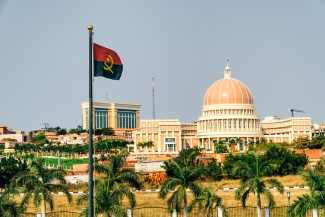Geneva Trade Week garnering inputs from far and wide
|
|
|
A truck laden with produce from a record harvest idles in a queue beneath the searing sun, waiting to cross a border to feed the population of a country where this year, the rains did not come.
An entrepreneur with a lucrative new idea considers giving up on her dream, frustrated at being unable to attract the foreign capital she needs to take her business to the next level.
A factory manager frets, wondering if export restrictions in his supplier’s countries will mean his production line grinds to a halt, unable to produce the critical life-saving equipment his clients need.
Each of these stories repeats itself, in a million variations all over the world. Sometimes, the ending is a positive one. A border process quickly navigated, investors secured and inputs obtained. At other times, the story is tragic. The ending, as often as not, is driven by trade policy.
Decisions by governments at the local, national, regional and global level can make or break that truck’s journey, that entrepreneur’s search for finance or that factory’s output. Those making such choices, whether in a sweltering customs checkpoint or in the halls of the World Trade Organization (WTO), need to hear from as many voices as possible.
Absent input from trade practitioners on the ground, from smaller businesses struggling to navigate trade, from developing countries facing unique challenges and from marginalized communities and groups, policymaking stumbles unseeing in the dark. Even the best, most dedicated and most creative international negotiator or civil servant cannot address a challenge they don’t know exists, or can’t properly understand. Input isn’t just valuable, it’s irreplaceable.
Built around five themes representing some of the most critical trade conversations in 2020, Geneva Trade Week will see discussions on the big issues in trade, sustainability and the environment, how the WTO might be rebooted, trade’s intersection with other policy worlds, and digital trade.
This is especially true in 2020, when even before the pandemic the established global trading order looked to be on shaky ground. Tensions escalating to tariffs and trade barriers are rising. The WTO is reeling from a paralysis in its dispute settlement system, a near gridlock in several of its largest negotiations and a vacancy at the very top.
Ideas generated from the grassroots energize the international trade community, open up previously unseen avenues and create political momentum for change. A single timely intervention can start the ball rolling on entire new initiatives, or cause the international community to rethink axiomatic wisdom.
At the global level and in ordinary times, the premier annual event fostering conversations around such issues is the WTO’s Public Forum. 2020, unfortunately, is ever so far from ordinary times and the Public Forum was cancelled.
A new event is aiming to continue those conversations in neutral, open and inclusive spaces. Hosted by the Geneva Trade Platform, a new entity within the Geneva Graduate Institute’s Centre for Trade and Economic Integration, Geneva Trade Week is launching next week.
Taking place (mostly) digitally over five days between 28 September and 2 October, the week will bring together over 70 organizations from around the world for more than fifty free panels, plenaries, book talks by the authors and editors of Fostering trade in Africa and Practical Aspects of WTO Litigation, networking events, debates and discussions.
Built around five themes representing some of the most critical trade conversations in 2020, Geneva Trade Week will see discussions on the big issues in trade, sustainability and the environment, how the WTO might be rebooted, trade’s intersection with other policy worlds, and digital trade.
Other sessions will cover:
• implementation of the African Continental Free Trade Area in COVID-19 times;
• explaining trade to a non-trade audience;
• leveraging data for development;
• trade facilitation schemes in the digital era from a women's perspective;
• gastronomy in tourism supply chains and shrinking the distance between farmer and consumer.
Sessions will focus on audience engagement, with a large portion of each session specifically dedicated to participation and an exchange of views. The panellists and speakers will take a back seat as the online audience is invited to share their perspectives, engaging in dialogue and debate around a question central to the session.
The conversation won’t have to stop when sessions end, either. Alongside the week of discussions, the Geneva Trade Platform will also be welcoming anyone with a passion for trade policy and its implications to a brand new, free community called the Beyond Trade Network.
There has never been a more important time to tackle the big issues in trade.
--------------------
For all Geneva Trade Week 2020 coverage, see here.
The Enhanced Integrated Framework is an Inclusivity Partner of Geneva Trade Week 2020.
Header photo by Simon Hess/EIF
If you would like to reuse any material published here, please let us know by sending an email to EIF Communications: eifcommunications@wto.org.

